

Best Practice Standards


As part of the service delivery requirements held within the Service Agreement 2021-2026 between Queensland Positive People and Queensland Health, QPP became certified in the Human Service Quality Standards (HSQS) in January 2022.
QPP welcomed accreditation as a means to meet best practice standards and to demonstrate accountability processes to our communities and the people we work with.
Accreditation
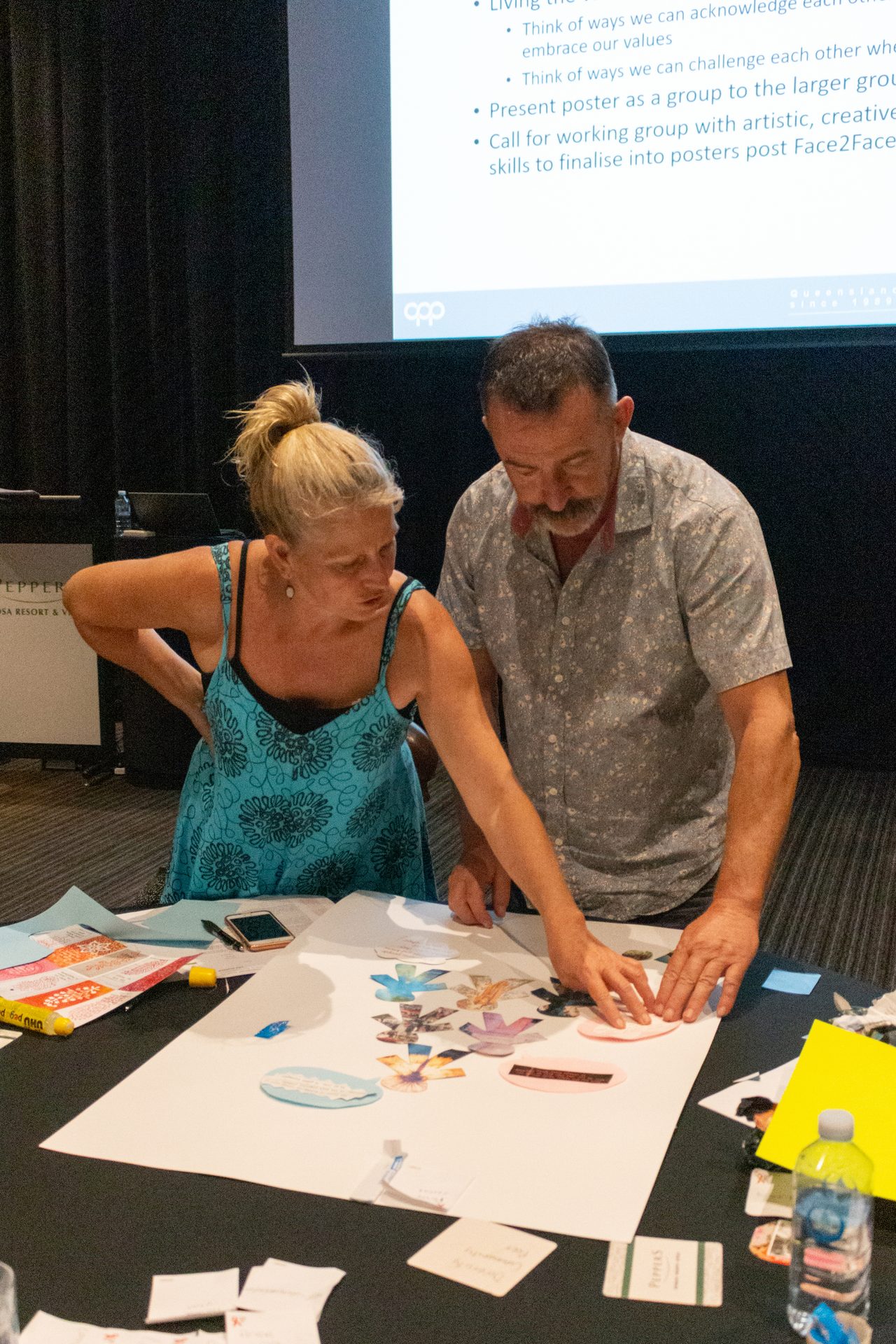
The HSQS accreditation procedure is also designed as a continuous improvement framework to support QPP to achieve its commitment to on-going quality improvement. The framework is designed as a continuous improvement framework to support QPP to achieve its commitment to on-going quality improvement.
Certification against the Human Services Quality Standards (HSQS) is a three-year cycle with a mid-cycle maintenance audit.
What is Accreditation and why do we need it?
It is the independent acknowledgment that QPP meets the requirements of governing industry standards and:
The Human Services Quality Framework (HSQF) is the assessment tool within the Human Services Quality Standards and is used by many organisations in Queensland.
The objectives of the HSQF are to:
- review our management system and processes
- determine our conformity with the standards
- validate that the management system complies with all applicable elements of the HSQS
- validate the organisation complies with its own policies and procedures.
- Recognises our commitment to best practice, quality, high performing systems and processes, and continuous improvement.
- Reassures QPP clients and stakeholders that we are committed to providing safe and quality service provision.
- Assists QPP to grow, expand and solidify our future sustainability.
Research & Evidence-making
HIV/STI Prevention and Testing
QPP is an active participant in research with state and national research institutions, government, and other community-based organisations.
Throughout the 2021/2022 financial year, RAPID has continued undertaking several novel research projects that continue to innovate within the sexual health space.
HIV treatment and care including research focused on the experiences of PLHIV include:
QPP would like to acknowledge our research partners across Australia and Queensland who partner and collaborate with QPP to build a better future for people with HIV.
We value research that demonstrates the impact of the services we provide and builds an evidence base to assist us to better understand the needs of our communities. Summaries of the projects QPP is involved are presented below.
The following co-authored abstracts/reports/articles were published this period:
Title: “They’re my go-to people”:A qualitative study of support networks for people recently diagnosed with HIV in Queensland. Published in the Journal of the Association of Nurses in AIDS Care.
The following authored and co-authored abstracts were submitted to IAS:
- Co-designing system level indicators for strengthening the quality and impact of peer led responses
- Achieving long term community and research partnerships: system level benefits, enablers, and barriers
- Queensland PLHIV Community Engagement: Linking GIPA principles with Quality of Life (IAS and Asia Pacific Confernence
Title: “Tackling structural stigma: a systems perspective”. Published Journal of the International AIDS Society.
Title: “Belonging, social connection, and non-clinical care: Experiences of HIV peer support among recently diagnosed people living with HIV in Australia”, Published in Health & Social Care in the Community.
Title: ‘Patient-centred approaches to providing care at HIV diagnosis: perspectives from healthcare and peer-support workers’. Published in Journal of Sexual Health.
Title: “Enduring stigma and precarity: A review of qualitative research examining the experiences of women living with HIV in high income countries over two decades”. Published in Health Care for Women International.
Title: “The spiral just keeps on going’: Cascading health and social issues for women living and aging with HIV”. Published in Women's Health.
Title: “Online HIV Self-Testing (HIVST) Dissemination by an Australian Community Peer HIV Organisation: A Scalable Way to Increase Access to Testing, Particularly for Suboptimal Testers”. Published in the International Journal of Environmental Research and Public Health.
Title: “Peer Navigators role in supporting people living with HIV in Australia: qualitative exploration of general practitioners perspectives”. Published in Health and Social Care.
Abstracts/Posters Accepted for ASHM 2022:
- PLHIV Community Engagement Linking GIPA principles with quality of life – accepted for an e-poster at Asia Pacific AIDS and Co Infections Conference 2022 (APACC) and a poster tour at ASHM 2022
- HIV Associated Neurocognitive Disorder Screening and Diagnosis Pathways in Australia: A scoping review – accepted for an e-poster at AIDS 2022
- Proving the power of peers: Creating a practical toolkit to enable peer/community-led organisations evaluate their work and better understand, demonstrate, and improve their impact. Petrina M Hilton, Graham Brown, Chris Howard, Tim Krulic, Jane Dicka, Adam Bourne
- Incorporating Quality of Life Into Care for People Living with HIV (PLHIV): Developing a Consensus Tool of Health and Social Patient Reported Outcome Measures (PROMs) For Clinical and Community Services. Olekalns A, Mai C, Lloyd J, Cifali D, Howard C, Hoy J, O’Reilly M, Rule J, Brown G.
- PLHIV community engagement: Linking GIPA principles with quality of life (oral poster). C. Howard, B. Allan, J. Badge. Queensland Positive People, East Brisbane, Australia, Qthink Consulting, Malmsbury, Australia.
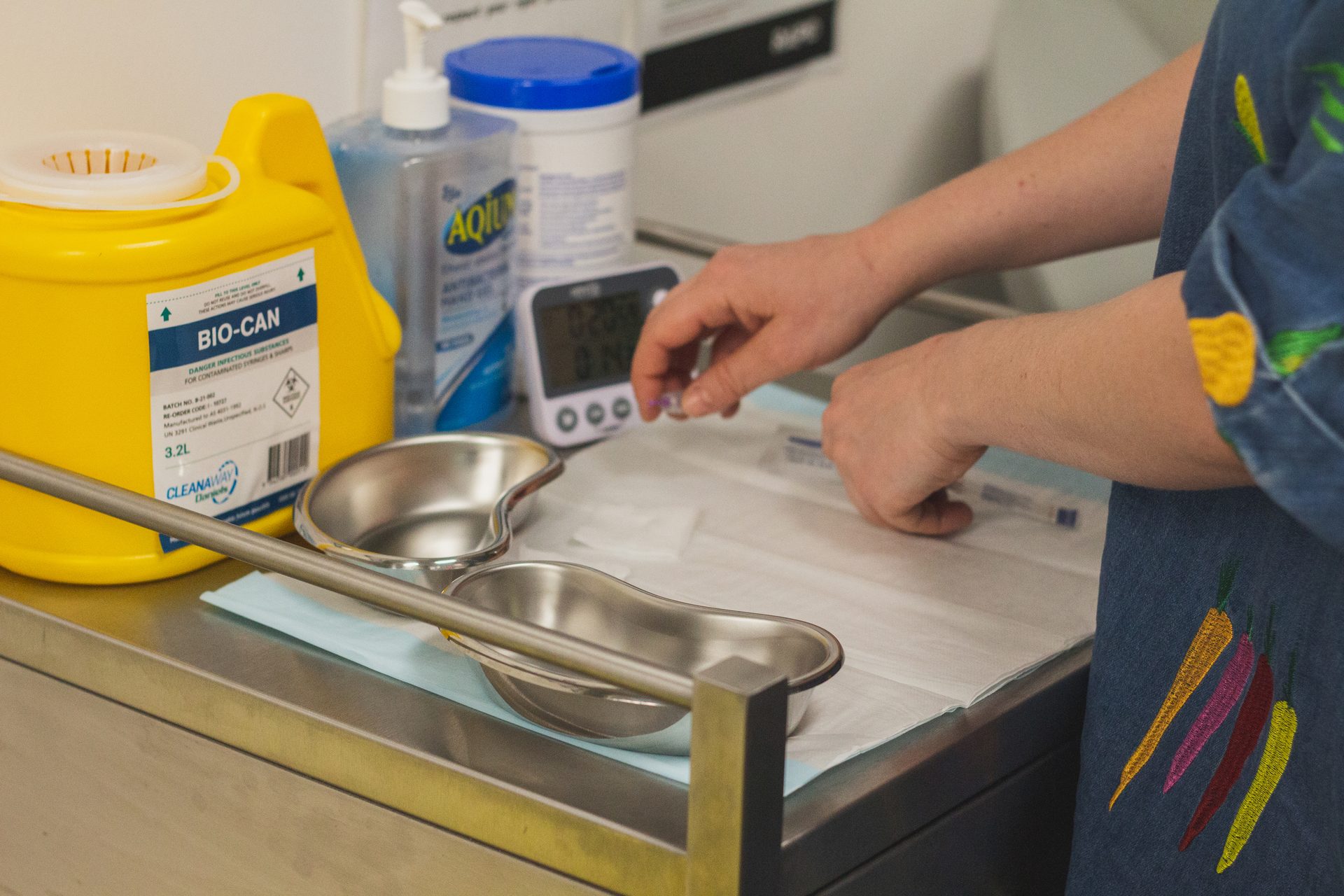
This reporting period saw RAPID continue to broaden its geographical reach with a mail out self-testing program, distributing the Atomo HIV self-testing device across the state. The peer support component of the clinic was reworked to suit a telehealth modality, and peer testers provided sexual health education and health promotion messaging to clients over the phone. This program continued to be successful with targeting hard to reach populations, where a significant proportion of clients reported testing histories of greater than 12 months or not at all.
In regards to other projects, RAPID has continued with its chlamydia and gonorrhoea pooling research, operated our vending machine program that distributed Atomo HIV self-testing devices at a university campus and two sex on premises venues, continued to partner with Metro North Sexual Health and HIV Service to provide a bi-weekly treatment clinic at our Fortitude Valley site, and investigated male fertility outcomes from gonococcal and chlamydial upper reproductive tract infections.
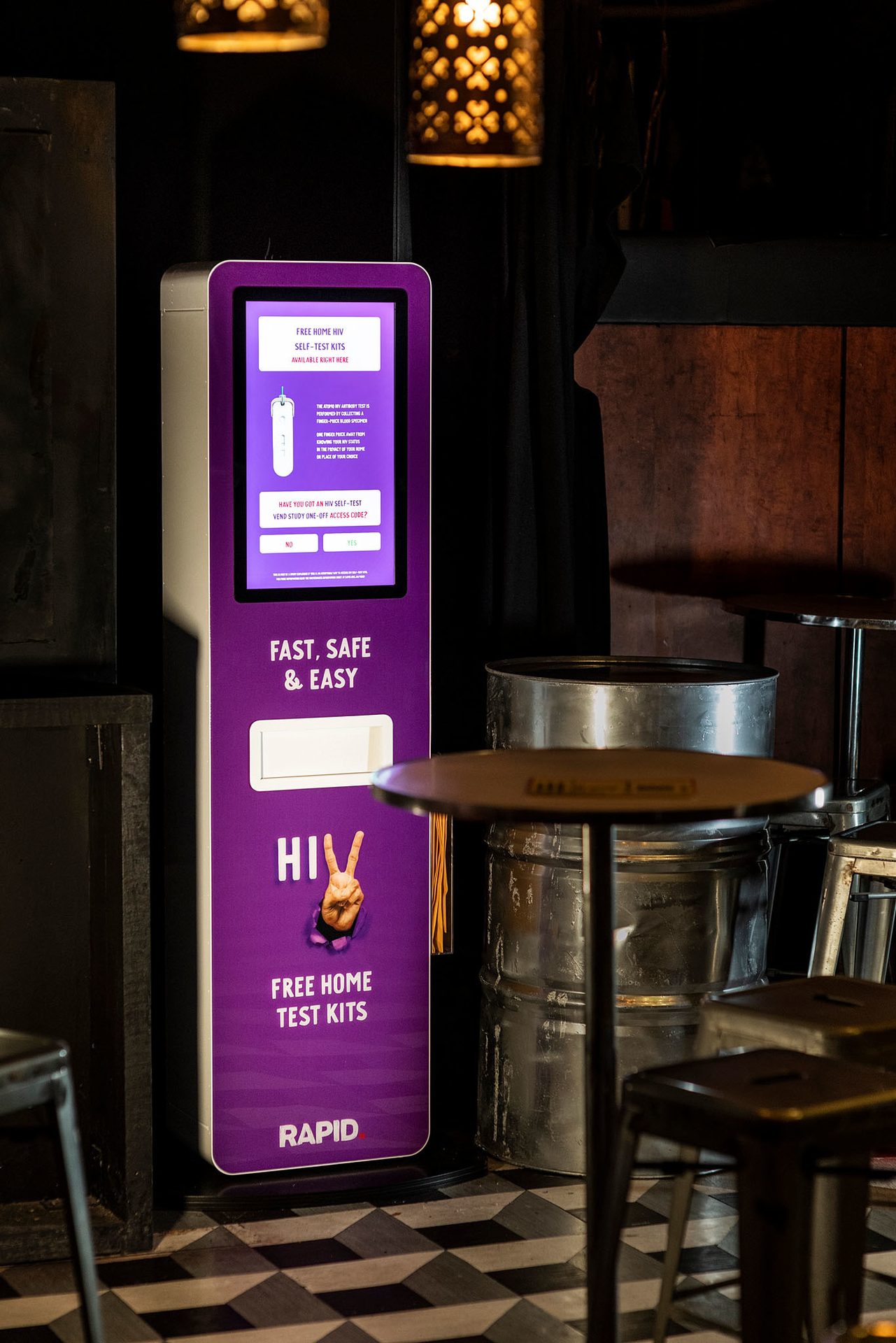
Advocacy
HIV and the law in Queensland
The scientific consensus of Undetectable = Untransmissible U=U and other medical progress is not yet well-understood or recognised in the broader legal system. QPP has continued important lobbying and education work for the decriminalisation of HIV.
Framework for a decriminalised sex work industry in Queensland
The Queensland Government has committed to decriminalising the sex work industry. This means regulating sex work as work, not as a crime. The Queensland Law Reform Commission (QLRC) has been asked to recommend what the framework for a decriminalised sex work industry should be.
QPP, in partnership with NAPWHA and HALC made a submission to the welcomed review and advocated for the decriminalisation of sex work in Queensland including:
- a focus on the detriment that the criminalisation of sex workers poses to human rights and the HIV response in Australia;
- a repeal of chapter 22A of the Criminal Code 1899, the Prostitution Act 1999 and sections of the Police Powers and Responsibilities Act 2000 and
- The necessary review of the current public health laws, which specifically discriminate against and criminalise people living with HIV engaging in sex work.
Review of the Queensland Anti-Discrimination Bill
QPP met with the Queensland Human Rights Commission with HALC and NAPWHA as part of the initial consultation phase and submitted a joint submission for the review. We advocated for:
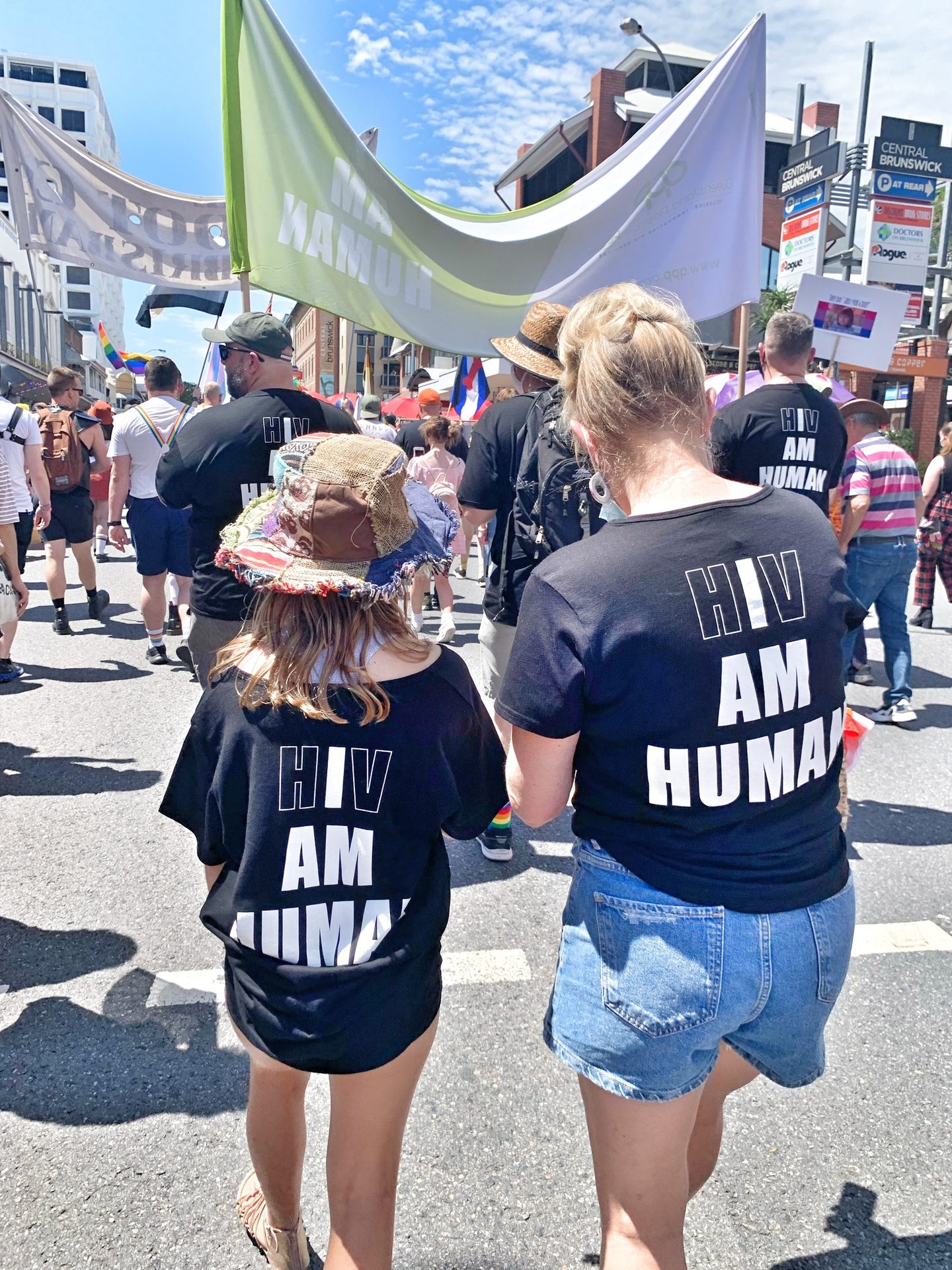
- zzzzzzzzzextended, strengthened and clarified protections to ensure that PLHIV and everyone who needs protection under the Act was included;
- a shift of focus to prevention of discrimination and harassment before it happens;
- making the law easier to understand and apply by modernising the language and definitions; and
- streamlining the complaints process to make it more flexible and efficient.
The final report Building belonging: Review of Queensland’s Anti-Discrimination Act 1991 and recommendations have been tabled in Parliament and we await the Queensland Government’s response.
Staff Training and Development
To support this, we conducted the following training:
- Whole-of-organisational sessions on the Anti-Discrimination Act and Unconscious Bias with the Queensland Human Rights Commission;
- CALM Suicide Safety Training;
- Workplace Health and Safety and Quality Systems; and
- Team specific sessions such as clinical governance
At QPP, we know that our team are able to provide the highest possible level of care to our clients when they are engaged and informed.
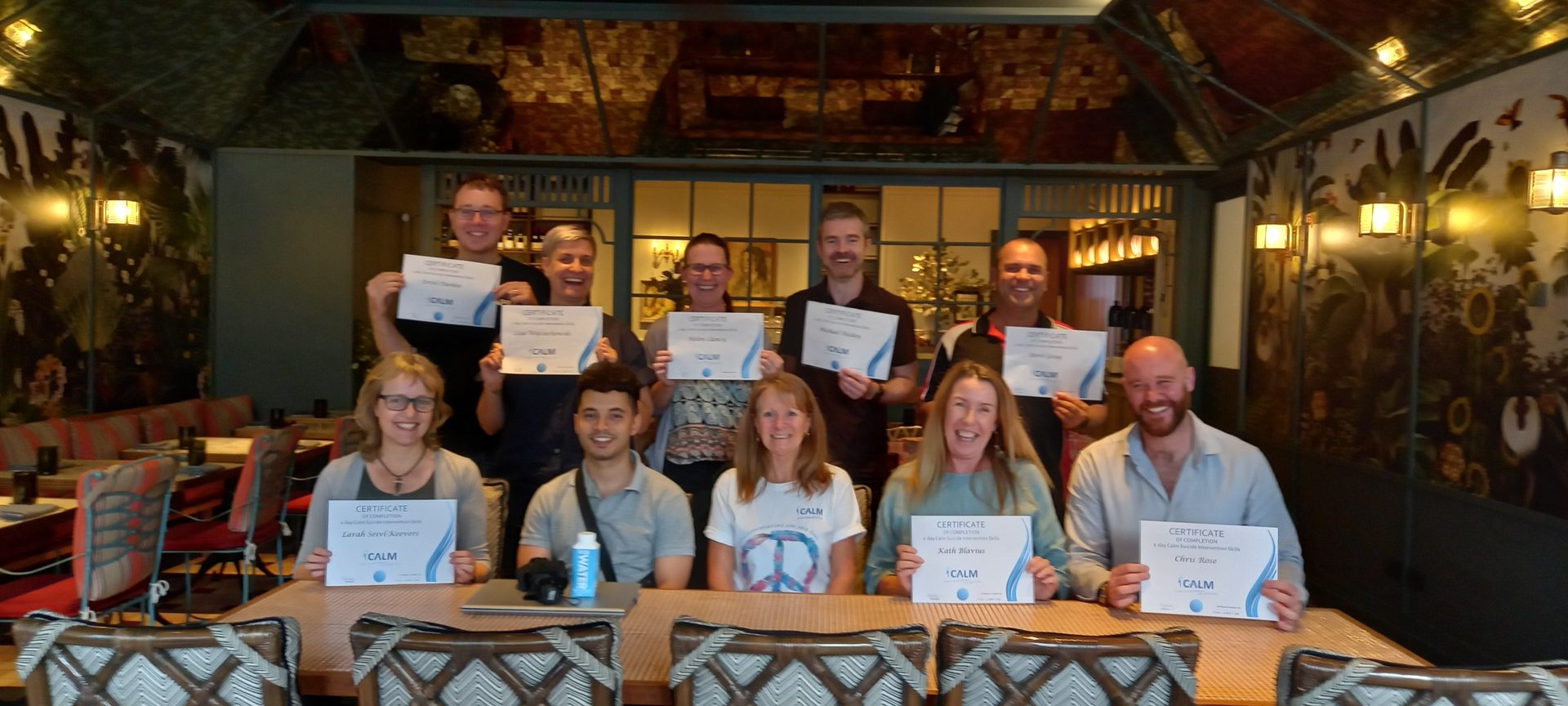
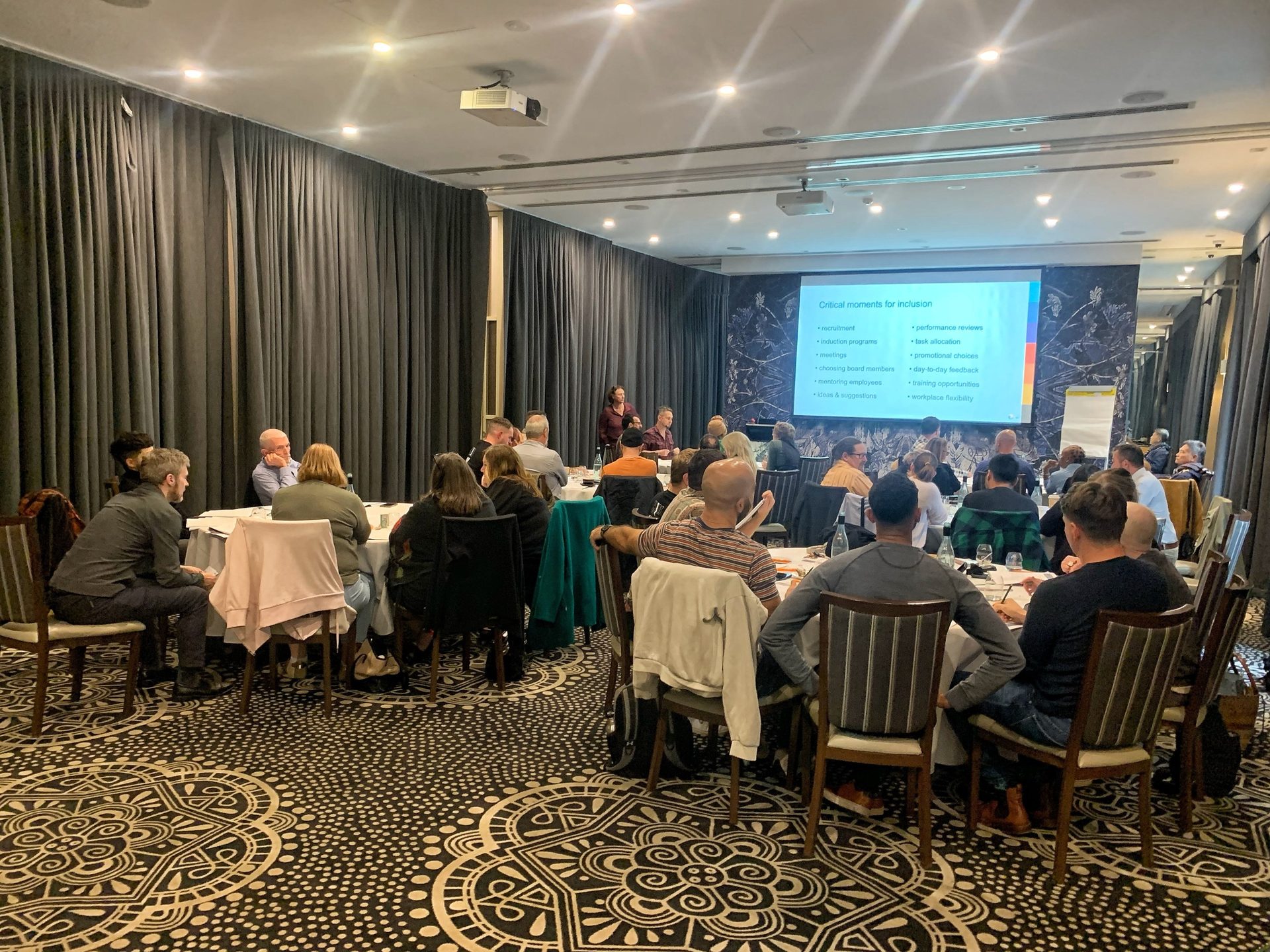
QPP will also support 21 staff and board to attend the Australasian HIV and Sexual Health Conference, which is being held on the Sunshine Coast for the first time.
It is always a privilege to be able to attend these conferences, and our staff take the opportunity for professional development seriously. The conference provides us with the opportunity to explore and engage with contemporary research and discuss all things HIV with clinicians, policy makers, funders and researchers from around the country. Several QPP staff will present their research and have been invited to speak at the conference.
We have also applied for a grant from Gilead pharmaceuticals to host an exhibition booth, where we hope to distribute lots of information, sell our HIV I am Human T-shirts and merchandise and demonstrate our new HIV self-testing kits machine. We all hope to make lots of worthy connections for future partnership opportunities. All monies raised from the QPP shop will fund our community services.
